The Cause: inside the eco-home of the future
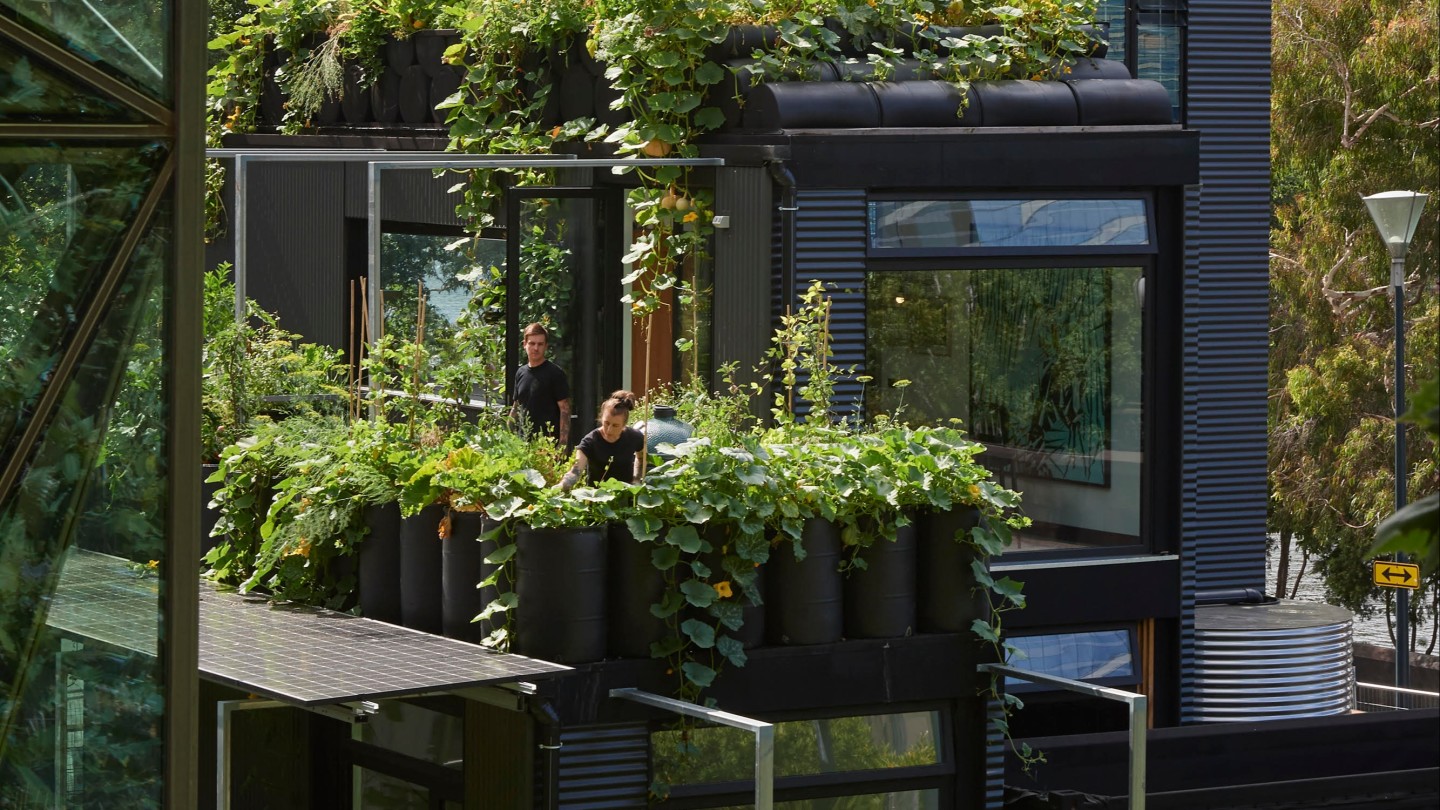
Simply sign up to the Sustainability myFT Digest -- delivered directly to your inbox.
At the end of this month, Joost Bakker will dismantle The Greenhouse – his impressive three-storey Future Food System housing experiment that opened in the middle of Melbourne’s busy Federation Square in January this year. It may be an ending of sorts but “it’s only the beginning”, says Bakker, “we haven’t maximised its full potential yet”.
The Greenhouse is the fifth project Bakker has built and is his most ambitious yet. Although only 87sq m, the two-bedroom, one-bathroom home is awe-inspiring. Completely self-sustaining and built without the use of chemicals, toxins or glue, it houses its own aquaponics systems to grow plants using waste from on-site fish; a bio-digester processes waste food and turns it into gas for cooking and hot water; solar panels line the roof and walls; and a wall humidified by shower steam enables mushrooms to grow. Outside, there’s a terrace garden with more than 200 species of plant life, including a vegetable patch and a beehive.
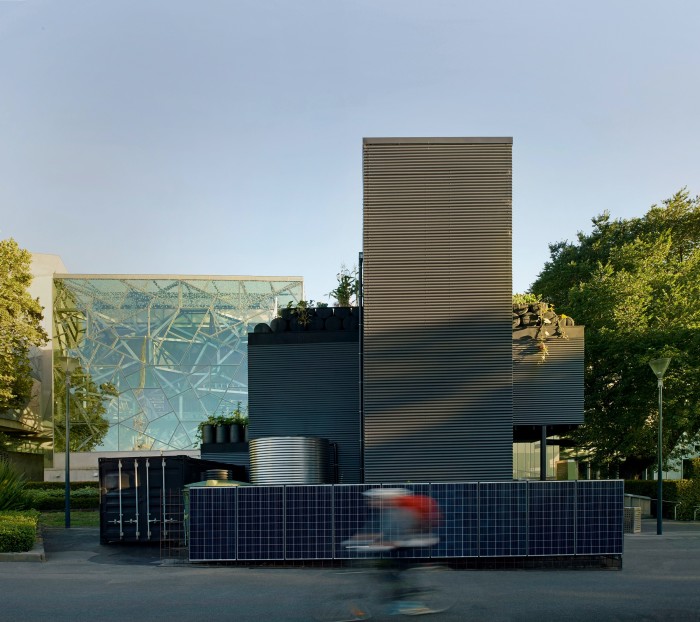
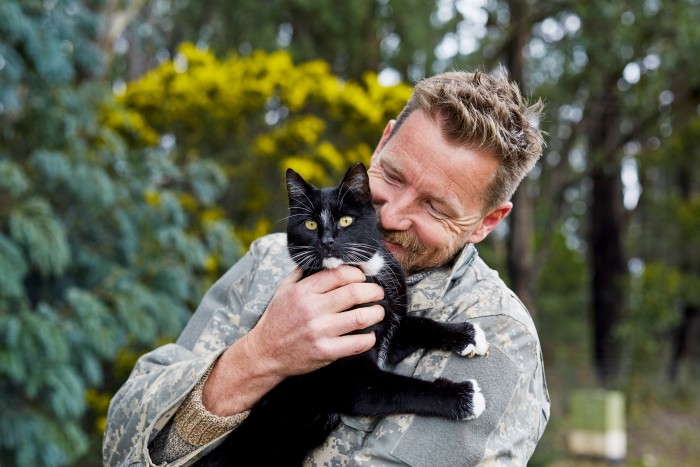
For five months, award-winning Australian chefs Matt Stone and Jo Barrett have been living in The Greenhouse, testing its functionality and hosting (with Bakker) on-site dinners and tours, plus livestreams and YouTube tutorials, to share learnings from the house. But now the whole edifice is being moved to a permanent new life with Bakker’s mother, 42km east of Melbourne in the town of Monbulk. “What’s really exciting is seeing how this house will evolve over time,” says Bakker. “By 2030, it will be thriving with food.”
Bakker is unequivocal about his ambitions for the house as a blueprint for a new model of living. “The Greenhouse is the way of the future, plain and simple. Everything for me revolves around zero waste, and this house poses the question: what happens when you don’t generate waste? What happens when you live in a completely closed system?” After six months he has proved the answer: “You end up with a home that has the capacity to shelter you, to nourish you and to create all the energy you need.”
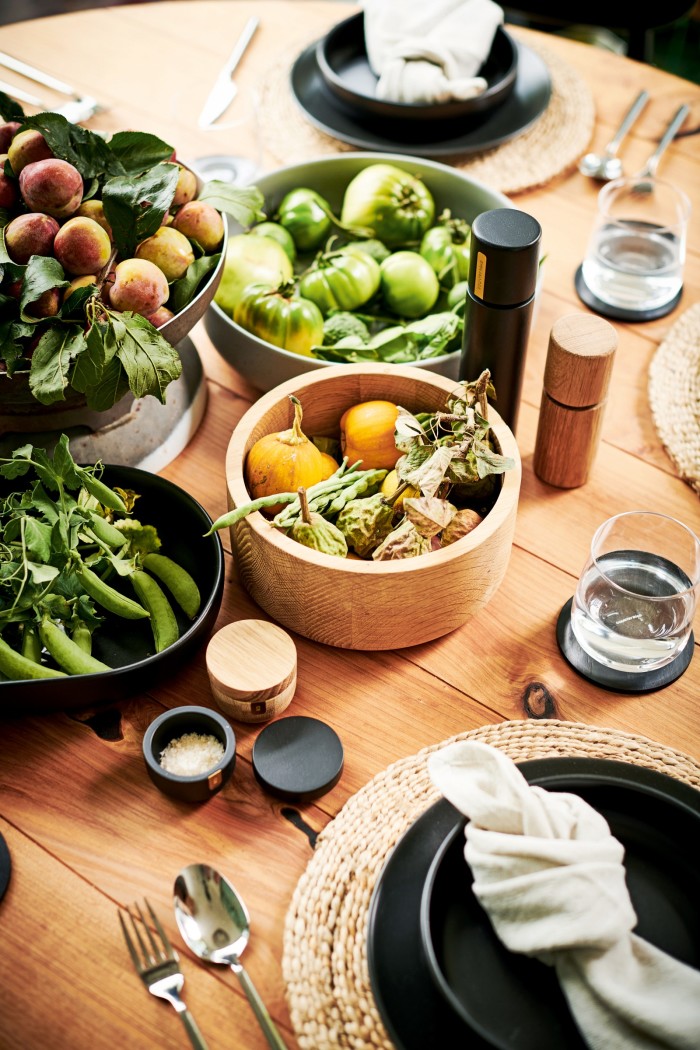
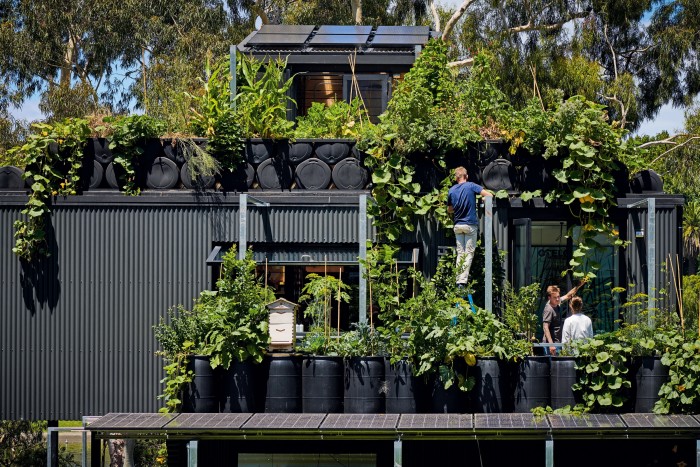
Growing up in The Netherlands, Bakker – who emigrated to Australia with his parents and three brothers in 1982 – spent many hours with his father on their farmland opposite the Dutch dikes. It was here that his passion for the environment was sown. “When I was about four, my dad and I would go out to the veggie patch and I’d collect things in the dirt like pipes, glassware and jewellery – rubbish from hundreds of years ago that farmers would collect from city streets to add nutrients to their soils. That was probably the first time it was made clear to me how stupid we are that we don’t return our nutrients to our soils – that we don’t live in closed systems.”
It was partly this realisation that directed Bakker into a career as a florist, making his name with installations that mixed flowers with upcycled materials and found objects. But his waste-free initiatives saw him cement his status as an environmental activist. They began in 2008 with Greenhouse by Joost, a three-month pop-up restaurant with a menu that used fresh produce grown on its roof terrace. That was followed by Greenhouse Perth in 2009, Sydney in 20ll and Melbourne in 2012, before the opening of Australia’s first permanent waste-free restaurant, Silo – a project partly spurred on by comments made by a prominent Australian hospitality figure, who told him a waste-free restaurant wasn’t possible. “I said, ‘Fuck you, I’m going to build one,’” he laughs.
“A lot of the ideas used in Silo are now just normal practice – it made me realise that you don’t need this grand idea to change the world,” says Bakker, who recalls chef Dan Barber of New York’s Blue Hill telling him that the concept for his own WastED pop-up was inspired by Bakker’s zero-waste hospitality venues. It’s a moment he regards as a highlight in his career.
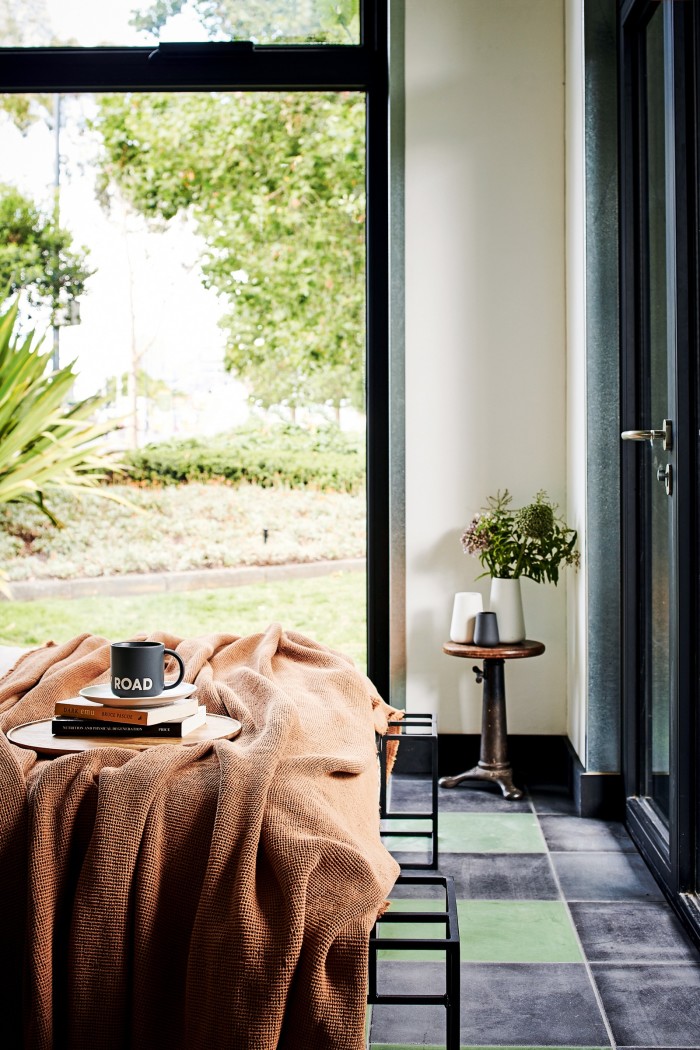
Bakker hopes that The Greenhouse and its overarching initiative, Future Food System – a realisation of a complete zero-waste system inspired by nature – will have a similar impact. “The previous Greenhouse pop-ups were never meant to be just restaurants; they were meant to showcase how a home could be a productive space, and that if we all converted our houses into these productive spaces, we could become a sustainable world,” he says. “But because we did so many pioneering things as a restaurant, the idea of it being a home got lost. That frustrated me because I believe the biggest opportunity for us to radically change how destructive we are as humans is by changing how we live.”
After living the experience, Matt Stone says: “We’re getting a lot of attention in Australia and around the world, and I think it’s starting to have some really positive effects. Joost is always so motivating – he pushes you to be better.”
Bakker has long advocated a zero-waste world, but his ideas used to be too radical for the public. “My dad used to say it’s all in the timing – if the idea is too new and people aren’t ready for it, then it’s not the right time.” When he describes The Greenhouse of 2021, his eyes light up with excitement. “What has changed is that there is a young demographic that is seriously pissed off with how we have been doing things and wants radical change,” he says. “The time is now, and I honestly believe that the retrofitting and the modifying of our building systems is going to become the new normal.”
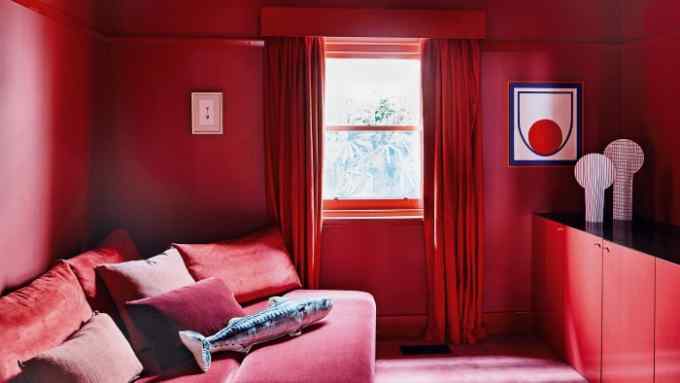
Comments